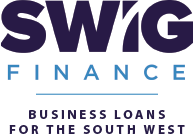Intellectual Property (IP) protection is important for many businesses, but the process can seem daunting. We spoke with Ben Travers, Head of IP, IT and Data Protection at Stephens Scown, to explore the different options and how they might benefit your business.

Ben Travers, Head of IP, IT & Data Protection at Stephens Scown
Demystifying Intellectual Property
For many businesses intellectual property (IP) is their most valuable asset. However, many businesses do not engage with the IP system in a pro-active way. Instead they often leave it until it is too late. This is especially surprising when you consider the amount of time and investment that goes into insuring and maintaining etc tangible assets, which often have a far lower value.
Many businesses assume that the IP regime is complicated, costly and only for businesses with large R&D departments. These misconceptions often prevent businesses from engaging actively with the system.
Many businesses also focus too heavily on patents. Whilst patents are important and add valuable rights, they are not for everybody. IP rights come in many different forms and it is important to understand how the various rights will apply to your work.
This article looks at dispelling some of these myths and provides pointers on how businesses can get the most from their IP.
IP field guide – what to look for
All businesses will have IP. By looking after your IP proactively, you will find it helps you to meet your business goals and ensure your business future is sustainable. Below we look at some of the key IP rights, along with guidance on how to spot them in your business.
Copyright
All businesses will own copyright. Copyright protects, amongst other things, written words, software, images, etc.
Although copyright occurs automatically, the owner will usually be the person who created the work. This can cause issues, for example, where a contractor (such as a web developer, logo designer etc) completes work on your behalf.
Patents
Patents protect inventions. Although they are powerful rights, they are relatively expensive to obtain and can be unwieldly in terms of their time scales and flexibility, especially for a lean entrepreneurial start-up. Whilst patents are important, they are often given undue precedence by start-up businesses that focus on patents, whilst missing out on the rest of the IP regime.
Patents can only achieve registration if they are filed before the related idea is disclosed to the public. This inability to see whether an idea is commercially viable before making a patent application deters many businesses.
Designs
A design registration protects the way an item looks. Designs don’t have to be aesthetically pleasing they can be part of the external make-up of a product. Design registrations can be used for internal components of, for example, machinery or electronics. Design registrations are powerful rights which can often be overlooked but which can be an important way to protect the look of your products and to slow down the competition, whilst preventing others from creating products that look like yours.
Trade marks
Trade marks protect your reputation. A trade mark registration enables you to stop others from using an identical or similar mark in respect of identical or similar goods and services. These really important rights are essential for all businesses and you should consider trade mark registrations for company names, trading names, domain names, etc. Many businesses fail to obtain the trade mark registrations they need because they assume that a company name or a domain name registration will give them the protection they need, when this is not the case.
Adding value
IP has a value which can be added to your bottom line. IP enables you to stop others from benefitting from your innovation and it also creates an asset which you can license. For example, if you are looking to license software, set up a franchise model, or permit other people to use your brand in the future, it is essential that you have your IP covered first.
It is also really important that you are able to satisfy to any investors that your IP does not infringe that of any third party rights. Investors will want to know that others will not be able to detract from your proposition by alleging IP infringement or registering IP in ways which shoehorns your development down a certain a path.
Next steps
The expert IP, IT and Data Protection team at Stephens Scown offers a free IP MOT service, designed to help businesses understand where they are interacting with IP and how can it add value to their business.
For more information about how IP can add value to your business, ensure that your growth is sustainable and to use it as a tool to ensure your growth plans, please contact the team at ip.it@stephens-scown.co.uk who will be able to discuss the IP MOT and other tools with you.
About Stephens Scown
The intellectual property law and information technology team is one of the largest teams specialising in this area in the UK. It prides itself on its clear, concise advice. Clients enjoy a proactive approach and trust us to distil complex legal issues into practical commercial advice that makes a real difference to their business in the UK and overseas.
The team is ranked in both Legal 500 and Chambers. Regional, national and international clients ask us for advice on a broad range of IP and IT issues.
https://www.stephens-scown.co.uk/
About SWIG
SWIG Finance is a Community Development Finance Institution (CDFI) and an accredited delivery partner for the British Business Bank’s Coronavirus Business Interruption Loan Scheme (CBILS).
We provide loans of £500 to £250,000 to South West SMEs who cannot access sufficient finance from their bank.
If you are a viable business seeking to grow, or your cash flow has been disrupted by COVID-19, get in touch with our friendly and professional team to find out how we can help: info@swigfinance.co.uk / 01872 227 932.
Alternatively, for more information, visit https://www.swigfinance.co.uk
